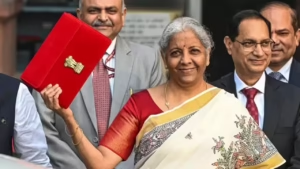From bustling street corners in Mumbai to school and office canteens across India, snacks like samosa, vada pav, jalebi, and kachori have become everyday indulgences. But a new directive by the Health Ministry, urging public institutions to display nutrition boards listing fat and sugar content, has sparked fresh debate: Are our favorite fried snacks quietly damaging our health?
It’s Not Just About Calories — It’s the Quality of Calories That Matters
When we talk about controlling obesity and blood sugar, we often just count the calories, explains Ritika Samaddar, Regional Director of Dietetics at Max Healthcare. “But the source and quality of those calories are equally important.”
For example, while a fruit and a sugary drink may offer similar energy values, the former comes packed with fiber and micronutrients, while the latter is a refined carbohydrate that can spike blood sugar levels. Similarly, calories from food fried in olive oil versus reheated refined oil may look the same on paper, but the nutritional impact is drastically different.
Why Reheated Oil Is a Bigger Threat Than You Think
The real concern isn’t the occasional indulgence, but how these snacks are prepared. Most street vendors and small eateries reuse cooking oil, which turns into a toxic brew after repeated heating. Experts highlight the formation of acrylamides, known to cause:
- Heart disease
- Digestive issues
- Increased risk of cancer
- Formation of trans fats that raise LDL (bad cholesterol) and lower HDL (good cholesterol)
Cooking in the same oil produces Advanced Glycation End Products (AGEs), which are linked to chronic illnesses like diabetes, kidney disease, and Alzheimer’s.
The Right Way to Enjoy Indian Fried Snacks
Experts agree that awareness—not avoidance—is key.
- Cook at home using fresh oil
- Replace refined flour with whole wheat or millet-based alternatives
- Bake or air-fry instead of deep-frying
- Keep portion sizes small
- Make them an occasional treat, not a daily habit
Whether it’s a vada pav, samosa, or a plate of jalebi, these traditional Indian snacks can remain part of your life—but they must be consumed mindfully. As India grapples with rising rates of non-communicable diseases, especially among younger populations, even small changes in how we prepare and consume food can have a massive public health impact.












More Stories
How “Lockdown-Level” Emissions Cuts Might Clean Delhi’s Air by 2040
Cyclone Ditwah: IMD Issues Red Alert for Tamil Nadu, Puducherry, and Southern States
Hong Kong Fire Death Toll Climbs to 55; Dozens Still Missing as Blaze Burns Into Second Day